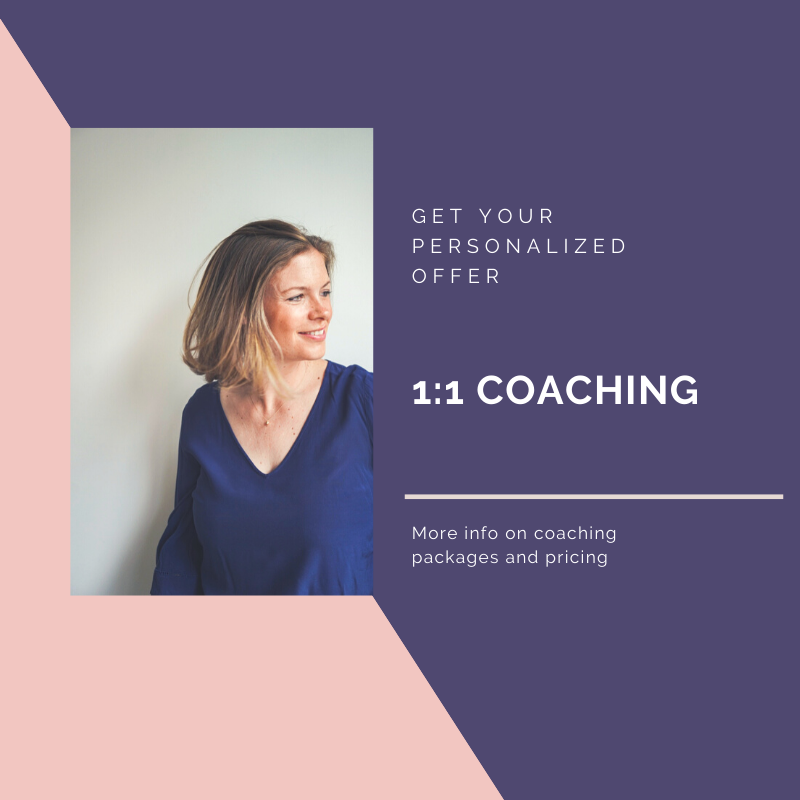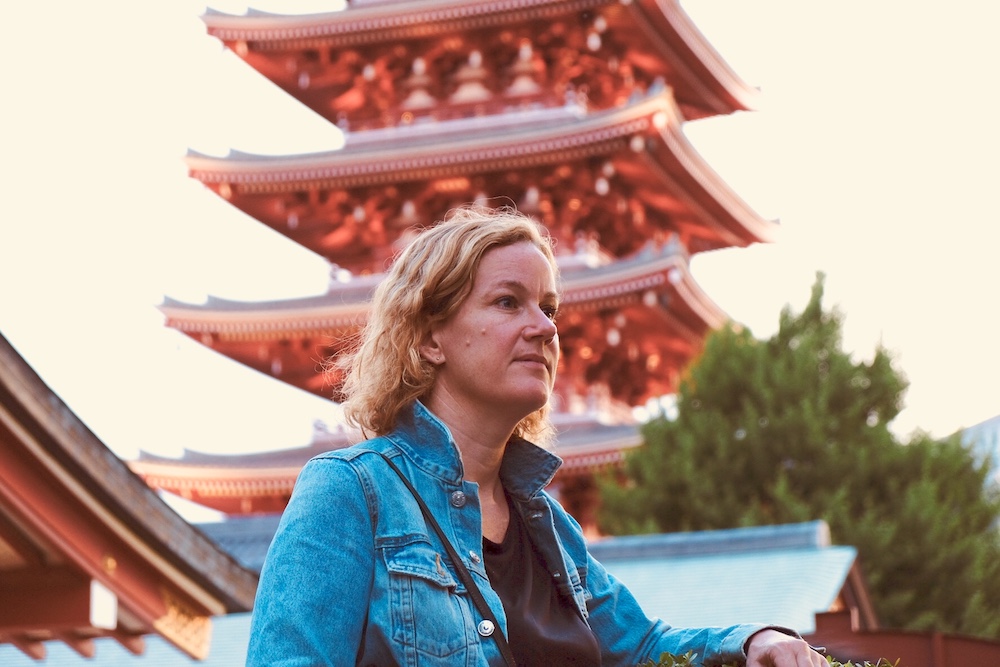
Becoming a teacher abroad
An Expat Partner Role Model Story
I met Andrea (how could it be otherwise in a pandemic) at home. She was beaming joyfully into the camera, and nothing suggested that three school-age children were being cared for in her household.
Andrea seemed to be very well-adjusted in her processes, and so we could focus on her life and her story undisturbed, which she was willing to share with the SharetheLove community. Originally from Germany, Andrea had just returned from her expat adventure in Japan with her family this springtime. There she attended the Goethe Institute and completed an extensive training program to become a „German as a Foreign Language“ teacher. Today, I want to share her story as an inspiration to others who are thinking about becoming a teacher as well. Let’s start at the beginning.
Meet Andrea
Originally from Germany, Andrea lived with her family in Japan for the last few years. It started as a classic secondment due to her husband’s job but on site in Tokyo she was able to start a new career through professional training at the Goethe Institute which she is now pursuing back in Germany.
How to connect
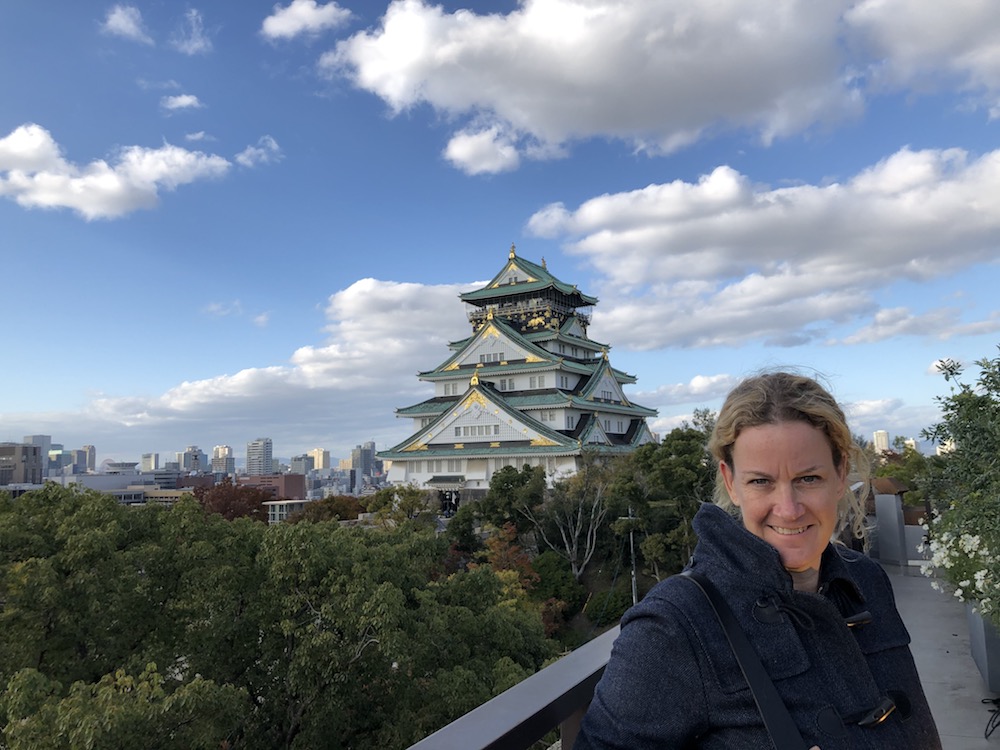
How it all began
Andrea has always been interested in living abroad. At age 16 she was in Venezuela for an exchange year, after high school in France, and she spent part of her law studies in Madrid. So the interest in other cultures has always been part of her DNA from the very beginning.
After finishing her law degree, she began her career bringing legal content to a non-legal audience. As a law-conference manager, she designed the content of seminars and conferences and recruited renowned experts for the individual topics. She had found an exciting job that was completely to her liking. She loves to listen to people, to be inspired by that and from time to time she also likes to be on stage. Unfortunately, it involved a lot of traveling, but otherwise, she was completely absorbed in her profession. It gave her great pleasure and she looks back at this time with happy memories.
The first career setback did not happen abroad, as is the case with many other expat partners, but before. Andrea was on parental leave with her second child and had to move within Germany because of her husband’ job. I often say to my clients that you don’t necessarily have to travel far away to challenge your linear resume. Some expats tell me about major cultural difficulties when they move from the East Coast to the West Coast in the US. The language is the same but there is a subculture and you are initially without a social network. For others, the linear career path is interrupted by becoming a mum and all the new roles that are part of life after it. In Andrea’s case, it was a combination of becoming a mum and moving within Germany that triggered the big question of what to do with her career. Due to the increasing demands of her family on her person, the desire to work part-time became greater and greater. The question was what to do after parental leave. Andrea started a part-time job in project management. She herself says about this job: „It was quite nice, but not very fulfilling. I didn’t realize that during the time I was there, but only in retrospect when I was back in a job that fulfilled me completely.“
So, the offer from her husband’s company came at a very good time. One day, her husband came home and said, „How about Japan?“ A question I am sure many of you have discussed at your kitchen table. Often these requests by companies come out of the blue with no anticipation or planning. Andrea thought about it for a night and then, full of excitement, agreed to this adventure.
Okay, so what does a German work in Japan?
Two months into her expat adventure, Andrea began to wonder what to do with her time and her life. Sure, living abroad can consume you completely. There is so much to organize and discover, but at the same time, she wondered what to do when she got back to Germany. She had been able to quit her last job with no emotional bond. So, she would not want to come back to this one. But what then? Like many expats, Andrea was asked again and again by friends and family back home what she was doing all day. It’s a question based on curiosity and unfamiliarity, but for many expats it opens the door to the really big topics. What am I doing here? What do I want in life? What am I actually good at? What do I want to contribute? How do I see my role? If you are being asked those questions repeatedly from the outside, you can’t help but constantly revolve around these questions yourself. Fortunately for Andrea, this phase did not last very long. She quickly found a solution for herself and was spared an identity crisis abroad.
Reflecting on what she was good at, she concluded that she really enjoyed teaching back then. Great memories popped up about her first job after law school and how fulfilling it was to her. At the same time, the complexity of the Japanese language was very daunting. However, what can a German mother do in Japan? Through an exchange with an acquaintance, she came across the topic of German as a foreign language, and through brief research, she found the Goethe Institute. They offer training as a German as a foreign language teacher in a mix of online and offline seminars. That seemed to be the perfect match!
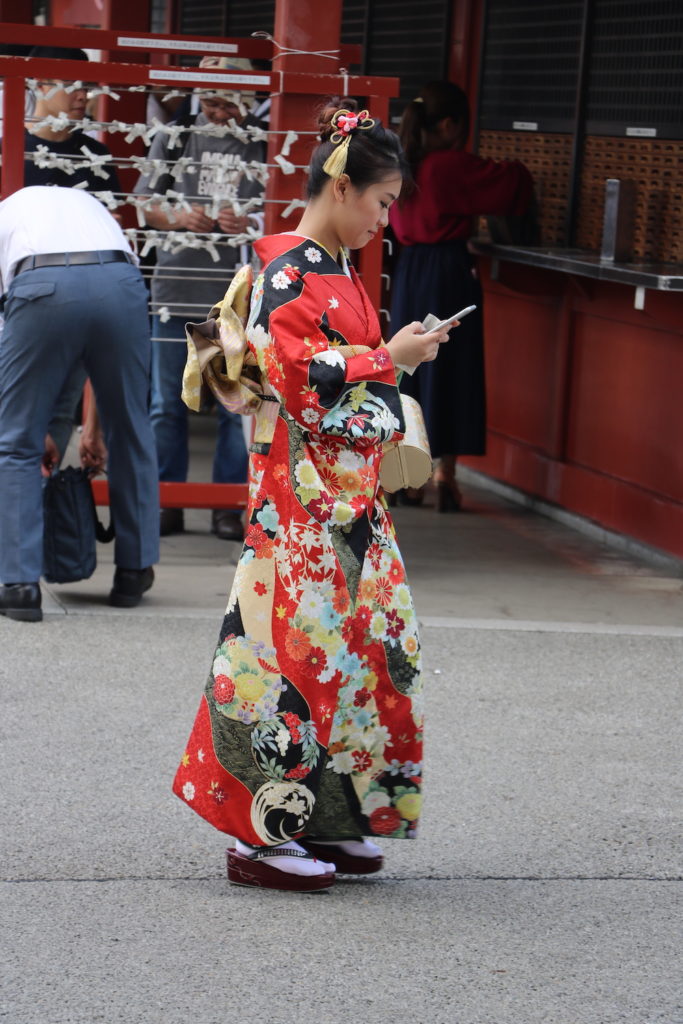
"As a family, we were all incredibly happy in Japan and I found the time very enriching."
The journey of becoming a teacher
For the first time being German and being a mum was a very convincing elevator pitch. The Goethe Institute actually preferred that she was a mother as she was used to reacting to unexpected situations all the time. And obviously speaking German as a native language was excellent.
She completed the so-called „Grüne Diplom“. A comprehensive course that lasts over two years and that deals intensively with the methodology of teaching. It focuses on how to teach best with the approach of only using German to teach the language.
In a culturally mixed group of 6 other candidates, Andrea went through the training, sacrificing weekends and free time. It was a very fulfilling time for her. On the one hand, it was an ideal opportunity to step out of the classic expat bubble and connect with locals. On the other hand, she learned skills that could be applied to other areas of her life. Fast forward to our call in the midst of a global pandemic, one can clearly see that this learned methodology serves her well with three school-age children in homeschooling. The family model in which she is primarily responsible for the education of the children is also very much desired by her and so it fulfills her to know that her contribution has only become more valuable.
In Japan, she was now able to give advanced classes and instead of teaching basic level communication, she was also able to share a lot of German history with the Japanese. In this way, she also got to know her own heritage from a whole different level.
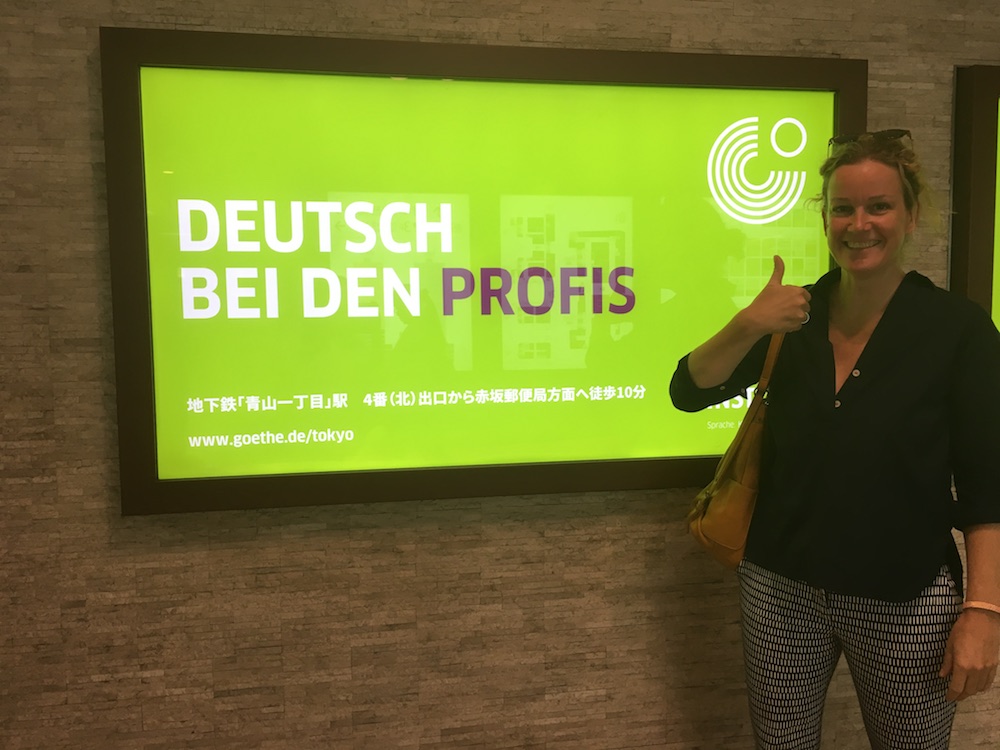
The gift of working abroad: Having local colleagues & acknowledgment
As much as she felt comfortable in her expat bubble and found many close friends, she also appreciated having colleagues now.
For many expat partners, colleagues abroad are a rare commodity. You only have access to colleagues if you pursue a profession. While the partner is connected with the locals on a collegial level through his work from day 1, the partner at home is first faced with the huge challenge of making any contacts at all. In this way, she was able to communicate with her husband at eye level and could take pride in being able to venture so deeply into the local culture.
"I appreciated having colleagues. It showed me the country from a completely different angle."
Another great aspect of this training to become a professional teacher has been the acknowledgment Andrea received. It is part of the training that a mentor sits in every lesson you have with your first students. In these training situations you are closely observed and receive detailed feedback on your performance afterwards. This form of recognition of work is denied to many who do not work abroad. Of course, the feedback can also be unsatisfactory, but you feel that you are seen and that your profession is taken seriously.
(By the way, it is the same with a professional coaching training. I was also closely observed during my training and received detailed feedback after each of the numerous training hours. I very much value feedback as a precious asset when living abroad and going through personal change.)
Over time she has established a close bond with her students. You spend so much time together that you are getting to know each other on a more personal level. Andrea really cherished those relationships with her students. She has shown me great pictures where she is standing among her students, all smiling heartfully. For privacy reasons, we decided not to publish these pictures here. However, it was great to see that his profession created such an intense sense of belonging for Andrea.
The portable aspect of being a teacher for languages
For Andrea, the flexible nature of her new job is a dream come true. She can take it not only to Germany but also to all other corners of the world. It is also flexible in how much space it takes up in her life. Now during the pandemic, she enjoys being there for her family knowing that she could always ramp up the hours when the time comes. It is neither a full time nor a part-time job but always exactly the job she wants to perform in her life. For Andrea, it’s what she’s always wanted to do, and you can see that confidence and satisfaction when she talks about it so vividly.
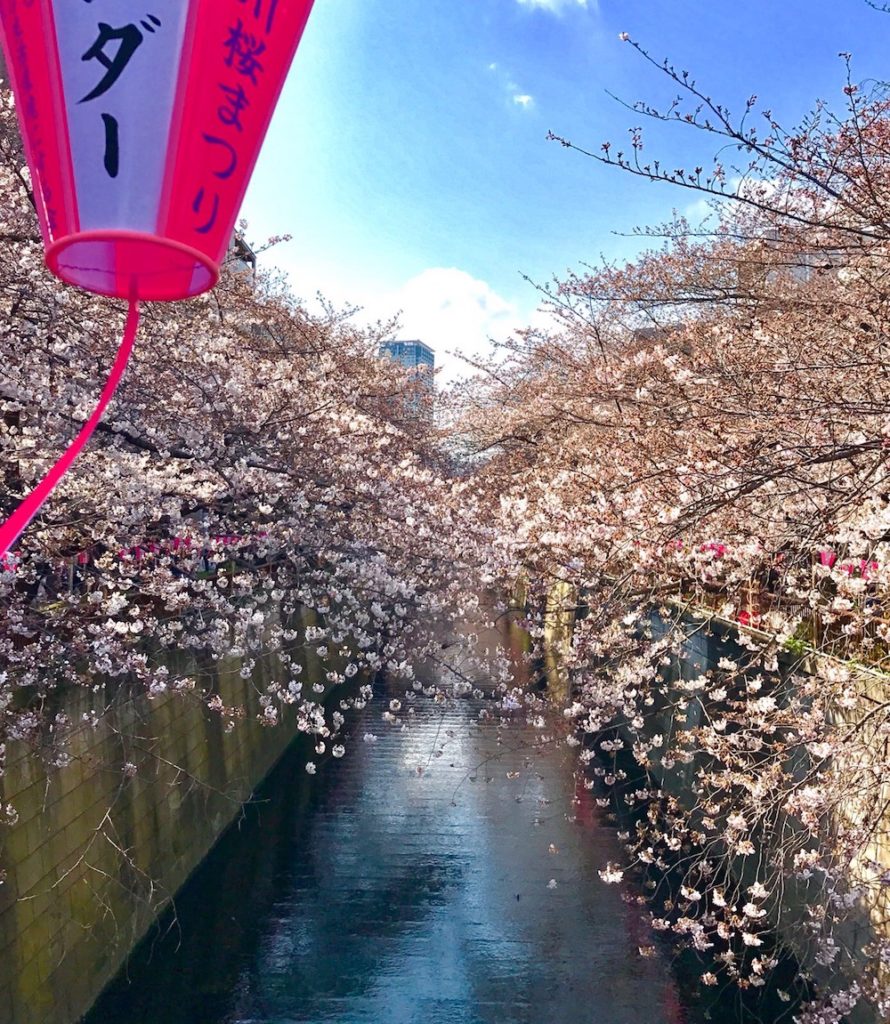
Her Tips for other expats
Similar to Farsana in our last interview, Andrea also advises to take the time abroad as an opportunity. She does not want to deny the complexity and the identity crisis that many have experienced. But in Andrea’s case, you can see very well how it can turn out when opportunities arise at a time when you look forward to them with an open mind. Many of my clients have already passed this emotional point and so it is often difficult to regain momentum and courage.
Andrea advises thinking about what you are good at and what you really enjoy. In her case, it was reflecting on her first job. By including the aspect of teaching in her life again, she rediscovered her enthusiasm for her professional life.
She also advises not to be too intimidated by others‘ opinions and questions. „Keep in mind that this is an artificial situation. If you were in your home country now, you wouldn’t be asked every day by friends and family how you’re planning your day and what you want to do with your life now, either.“ A very important point in my opinion. It shows how vital it is to look at the opinions of others from a distance. Why does he ask this now? What could be a positive intention? Could it be just curiosity and I take it personally because it hits a sore spot with me? Or do I simply notice that it does me no good and I should then also communicate this to protect myself? For Andrea, these questions have been helpful as they triggered her to think proactively about her future plans. Looking back, she is really grateful for this opportunity. How often in life do you have the chance to pause for a while and change paths consciously? Expatriation for many is the exit door from the hamster wheel. Some are leaving a life behind that was somewhat nice but also not exciting. Without this time in Japan, Andrea might have kept working in her previous job which was good but not great. So being triggered by those big questions can be a blessing. But for sure, they can also be very overwhelming. When you are struggling and you are feeling that doors around you are closing instead of new ones opening it might be time to speak to a coach to change perspective and get going again.
Back in Germany, Andrea now wants to continue this career as a teacher. She often realizes that others are confused by that decision. While the teaching profession is highly regarded in Japan, this is no longer the case in Germany. Here she is still seen more as a lawyer and the change to a teacher is seen as a social step backwards. The different recognition of the same profession in different countries can often be confusing. I recommend reading the story of Lea, an American nurse who moved to Zimbabwe where her profession was not acknowledged the same way for further context.
I ask Andrea if she minds this feedback and her answer couldn’t be more beautiful: „I couldn’t care less.“
When we act according to our values, we feel at peace with ourselves and our lives. It always gets difficult when we act against our values because of social pressure or pretended goals. The profession of teacher is a perfect fit for Andrea. It reflects everything that makes her who she is: the joy of passing on knowledge, the intercultural exchange with people who, like her, are willing to try something new, and the compatibility with her family thanks to the flexibility of working hours and its portable nature. What a great fit!
Dear Andrea, I wish you all the best for your further journey and I am looking forward to accompanying you a little bit and check-in with you along the way.
If you want to get in touch with Andrea you will find her contact details in the upper section.



